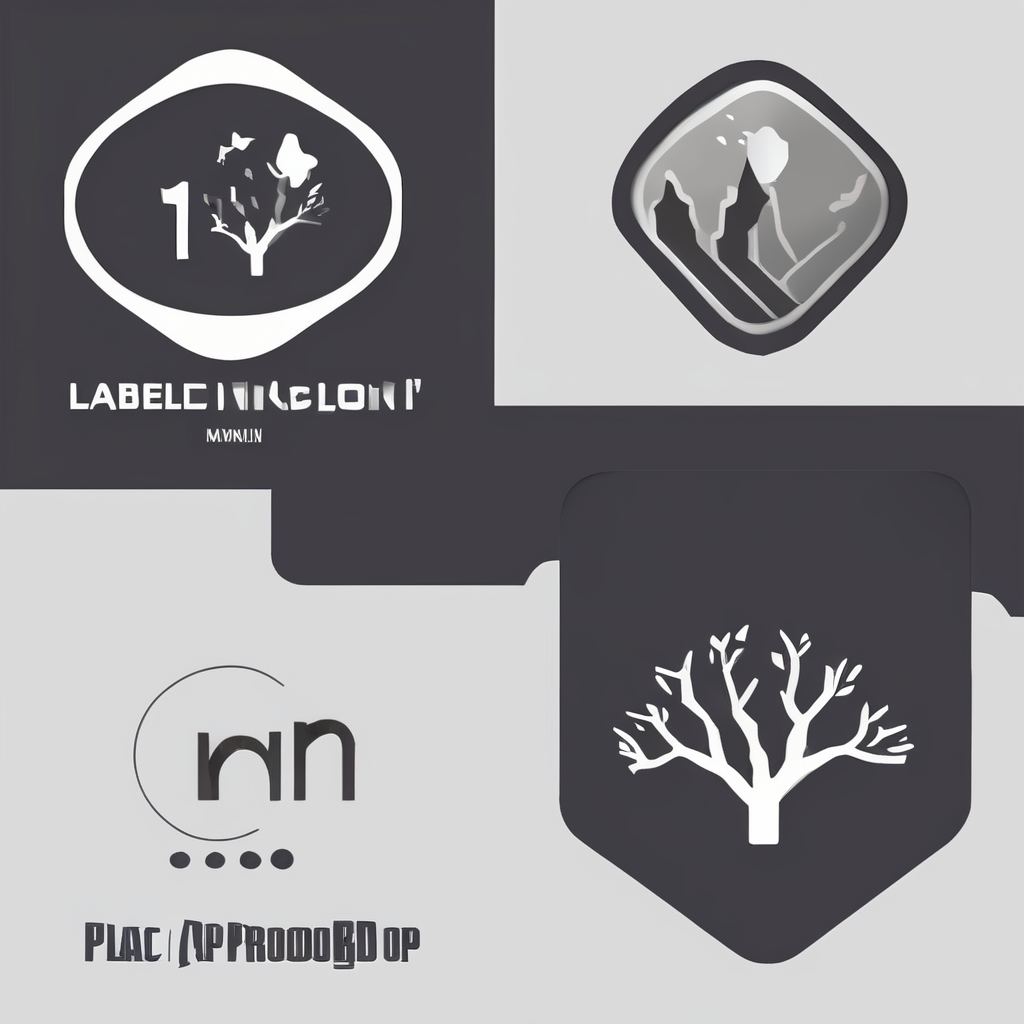Overview of Groundbreaking Healthcare Technologies in the UK
The UK healthcare landscape is rapidly evolving through the integration of emerging healthcare technologies UK, positioning the nation at the forefront of innovation. Key trends driving this transformation include widespread digitisation, artificial intelligence applications, and the adoption of wearable devices. The NHS, as a central pillar, actively embraces latest health tech UK to streamline patient care, improve diagnostics, and enhance treatment outcomes.
The digital health ecosystem in the UK benefits from robust collaborations among government bodies, research institutions, and private sector innovators. This synergy accelerates NHS innovations, fostering tools such as advanced electronic patient records and AI diagnostic systems. These initiatives directly address critical challenges like patient data integration and access to remote healthcare services.
Topic to read : How Can Lifestyle Choices Improve Mental Health in the UK?
Central to the adoption of new technologies is a commitment to improving patient experience and clinical efficiency. Government policies, funding programmes, and comprehensive digital strategies fuel this momentum. By leveraging data-driven solutions and cutting-edge tools, the UK healthcare system aims to deliver personalised, timely, and accessible care tailored to diverse patient needs.
Overview of Groundbreaking Healthcare Technologies in the UK
The emerging healthcare technologies UK landscape is rapidly evolving, driven by significant advancements in digital tools and innovative approaches. The UK’s health tech ecosystem integrates cutting-edge solutions including AI-driven diagnostics, telemedicine platforms, and wearable health devices, all contributing to improved patient outcomes and operational efficiency.
In the same genre : How Can Access to Green Spaces Improve Mental Health in the UK?
A critical driver behind technology adoption in UK healthcare is the NHS’s commitment to innovation, exemplified by strategic initiatives that promote digital transformation. These initiatives aim to enhance NHS innovations by streamlining patient care workflows and expanding access through remote consultations and real-time monitoring.
Additionally, collaboration between private tech firms and public health bodies fuels progress, supporting startups specializing in mobile health apps and data integration platforms. Government funding and policy reforms further accelerate adoption, ensuring the latest health tech UK solutions are both scalable and secure.
Together, this combination of technological advances, policy support, and ecosystem collaboration creates a dynamic environment where novel healthcare technologies continue reshaping the NHS and beyond, ultimately paving the way for a more accessible and efficient health service.
Artificial Intelligence Transforming UK Diagnostics
Artificial intelligence (AI) is revolutionising diagnostics in the UK, with AI diagnostics UK tools enhancing early disease detection and medical imaging accuracy. NHS artificial intelligence initiatives increasingly deploy machine learning algorithms to interpret radiology scans, pathology results, and patient histories, enabling quicker and more precise diagnoses. This is evident in pilot projects where AI supports cancer screening by analysing mammograms, reducing false negatives and improving patient outcomes.
How does NHS artificial intelligence improve diagnostic processes? It automates time-consuming tasks, allowing clinicians to focus on complex cases. Additionally, AI applications identify patterns invisible to the human eye, leading to earlier interventions. This integration of medical AI UK systems reduces diagnostic delays and lessens clinician workload.
The benefits extend to patients as well: faster diagnosis expedites treatment plans, while AI-driven tools offer personalised risk assessments. As NHS artificial intelligence programs expand, the collaboration between clinicians and AI becomes more seamless, establishing a new standard in UK healthcare diagnostics. Continuous refinement and validation of these technologies ensure that AI diagnostics UK solutions maintain safety and reliability, reinforcing trust in this transformative health tech.
Artificial Intelligence Transforming UK Diagnostics
AI diagnostics UK is rapidly reshaping how diseases are detected and managed within the NHS. Current applications focus heavily on medical imaging, where algorithms analyse X-rays, MRIs, and CT scans to identify abnormalities such as tumours or lung infections with remarkable accuracy. This early detection capacity often surpasses traditional methods in speed and precision.
Several NHS artificial intelligence pilot projects demonstrate the technology’s promise. For example, AI tools in radiology departments assist clinicians by flagging suspicious areas, reducing diagnostic errors and workload. These initiatives not only enhance the diagnostic process but also allow earlier interventions, improving patient outcomes across the UK.
Beyond imaging, medical AI UK systems help in predicting disease progression and tailoring treatment plans by analysing vast datasets of patient information. The indirect benefits include streamlined workflows and more personalised care strategies. Collectively, these advances underscore the NHS’s commitment to embedding AI diagnostics UK as a standard component of future healthcare delivery, ensuring both clinicians and patients benefit from more accurate, efficient, and timely diagnoses.
Telemedicine and Remote Care Expansion
The rise of telemedicine UK marks a transformative shift in patient care access across the country. NHS virtual consultations have rapidly expanded, especially following recent demands for remote healthcare services. This shift enables patients to connect with clinicians from home, reducing the need for in-person visits while maintaining care continuity.
Government policies actively back this transformation, promoting infrastructure investment and streamlined regulations to embed virtual services within NHS frameworks. Support from NHS innovations ensures these platforms offer secure, user-friendly interfaces tailored to diverse patient populations.
Key technology platforms used in telemedicine UK include video conferencing tools integrated with electronic systems, enabling seamless appointment management and real-time data exchange. Remote healthcare services also encompass mobile health apps that monitor patient conditions between visits, enhancing proactive care delivery.
Together, these developments foster a flexible, accessible healthcare environment, positioning telemedicine as a crucial component of the UK’s healthcare future. As adoption grows, benefits extend to clinicians through workload management and to patients by expanding timely healthcare access nationwide.
Digital Health Records and Data Integration
In the UK, digital health records UK are undergoing significant enhancements to enable seamless patient data access across NHS Trusts. The focus is on improving electronic patient records UK systems through interoperability, allowing diverse healthcare providers to securely share information. This integration is vital for coordinated care, reducing duplication and errors.
How does NHS digital transformation address data challenges? It implements unified platforms and standardised data formats that support real-time updates and comprehensive patient histories. These advances promote efficient workflows and enable clinicians to make informed decisions faster.
Data security and patient privacy remain paramount within this digital evolution. The NHS adheres to strict regulatory frameworks safeguarding sensitive information while maintaining accessibility for authorised users. Encryption and multi-factor authentication are standard features supporting compliance.
By advancing digital health records UK and fostering interoperability, the NHS enhances patient safety, streamlines care delivery, and lays a robust foundation for future innovations. This digital backbone ensures that NHS digital transformation efforts continue aligning with both technological progress and patient-centred priorities.
Digital Health Records and Data Integration
The evolution of digital health records UK is central to the NHS digital transformation agenda. Recent advancements focus on creating interoperable electronic patient records UK systems that enable seamless information exchange among hospitals, primary care, and specialised services. This integration addresses the challenge of fragmented data, improving clinical decision-making and patient outcomes through timely access to comprehensive records.
Interoperability is achieved using unified standards and secure data-sharing protocols. NHS innovations include nationwide platforms that facilitate real-time updates to patient information accessible across care settings. This reduces duplication, medical errors, and administrative burdens.
Data security and patient privacy remain top priorities in designing digital health records UK systems. Robust encryption, strict access controls, and continuous monitoring protect sensitive patient data from breaches while ensuring compliance with UK healthcare regulations.
Overall, the NHS digital transformation drives a more connected healthcare environment. Access to accurate, timely digital records empowers clinicians to personalise treatments and enhances coordination. Implementing these systems supports the broader goal of modernising UK healthcare infrastructure with secure, integrated technologies that directly benefit both providers and patients.
Telemedicine and Remote Care Expansion
Telemedicine UK has significantly expanded, transforming patient care access across the country. NHS virtual consultations now enable patients to engage with clinicians remotely, providing a practical alternative to traditional in-person appointments. This shift improves healthcare accessibility, especially for those in rural or underserved areas needing timely care.
Government backing is crucial for this growth. Targeted policies and infrastructure investments support telemedicine UK platforms, ensuring they comply with NHS innovation standards. These platforms offer secure and user-friendly interfaces, enabling smooth virtual interactions and efficient appointment management.
Technology enabling telemedicine UK includes integrated video conferencing tools linked with electronic health records for real-time data sharing. Additionally, remote healthcare services incorporate mobile apps supporting patient monitoring between consultations. These developments enhance proactive disease management and reduce healthcare system burden.
The expansion of telemedicine UK benefits both patients and clinicians by facilitating flexible care delivery and balancing workloads. NHS virtual consultations also promote sustained healthcare engagement, making remote access a pivotal feature in the ongoing evolution of UK healthcare services.
Advances in Biotechnology and Genomics
Biotechnology and genomics healthcare UK initiatives are rapidly advancing precision medicine NHS strategies, with Genomics England playing a pivotal role. This national project utilises large-scale genomic sequencing to personalise treatment plans tailored to patients’ genetic profiles, significantly improving clinical outcomes.
UK biotechnology achievements include developing innovative therapies targeting genetic disorders and advancing regenerative medicine. These breakthroughs bring promising solutions for previously untreatable conditions, integrating cutting-edge science into everyday clinical practice.
Emerging therapies based on genomic data allow the NHS to shift from generic treatments to highly specific interventions, reducing side effects and enhancing efficacy. This approach leverages vast datasets and bioinformatics tools, enabling clinicians to identify unique disease markers and select optimal therapies.
Ongoing collaboration between research institutes, industry, and the NHS ensures that biotechnological advances rapidly translate into patient care. As genomics healthcare UK continues to evolve, it supports a transformative future where personalised medicine NHS initiatives deliver tailored, effective treatments that improve patient outcomes across diverse populations.
Wearable Devices and Personal Health Monitoring
Wearable devices in the UK are key components of health wearables UK, enabling continuous, real-time health data collection. Common types include smartwatches, fitness trackers, and specialised medical wearables that monitor vital signs such as heart rate, oxygen saturation, and physical activity. These devices support personalised health by providing users and clinicians with actionable insights.
Several NHS pilots exemplify the integration of fitness technology NHS for remote patient monitoring. For instance, projects use wearables to track patients with chronic conditions like diabetes or heart disease, allowing early intervention and reducing hospital admissions. This collaboration demonstrates the practical impact of remote monitoring UK technologies in proactive healthcare.
The value of wearables extends beyond data collection. Real-time monitoring facilitates preventative care by alerting patients and healthcare providers to early warning signs. Moreover, continuous data supports tailored treatment plans and improves patient engagement. The NHS’s embrace of these tools reflects a broader commitment to leveraging health wearables UK alongside traditional care models to enhance outcomes and system efficiency.
Wearable Devices and Personal Health Monitoring
Wearable devices have become a cornerstone of health wearables UK, enabling continuous health tracking through smartwatches, fitness bands, and biosensors. These tools provide valuable real-time data for both patients and clinicians, enhancing remote monitoring UK capabilities. Common uses include heart rate monitoring, activity tracking, sleep analysis, and blood glucose measurement, which support proactive health management.
How do fitness technology NHS initiatives incorporate wearables? The NHS runs pilot projects integrating wearables into patient care pathways, particularly for chronic disease management such as diabetes and cardiovascular conditions. These projects demonstrate that patient engagement improves when technology supports self-monitoring and timely clinical interventions.
The value of wearables lies in their ability to deliver personalised insights, allowing healthcare professionals to detect early warning signs and adjust treatment plans dynamically. By feeding data into NHS systems, remote monitoring UK facilitates remote consultations and reduces hospital visits without compromising care quality.
These technologies not only empower patients but also optimise NHS resources, promoting preventive care and easing pressure on healthcare facilities. As wearable tech advances, their role in UK healthcare is expected to expand, aligning with latest health tech UK innovations to support a more connected and responsive health system.
Overview of Groundbreaking Healthcare Technologies in the UK
The landscape of emerging healthcare technologies UK is characterised by rapid adoption of digital solutions transforming patient care and clinical workflows. The UK’s digital health ecosystem thrives on the synergy between government initiatives, private sector innovation, and NHS collaboration. This environment accelerates the development and deployment of the latest health tech UK, such as AI diagnostics, telemedicine platforms, and advanced data integration systems.
Key drivers behind technology adoption include the NHS’s strategic focus on improving patient outcomes through personalised and efficient care. Crucially, NHS innovations emphasise interoperability of systems, safeguarding data security, and expanding access through remote healthcare services. Funding and policy frameworks provide foundational support, enabling digital infrastructure enhancements and fostering startup partnerships.
To illustrate, integrated electronic patient records underpin accessible, real-time clinical data sharing across healthcare providers—addressing fragmentation and enhancing decision-making. Meanwhile, AI tools assist in diagnostics, and wearable devices support continuous monitoring, all coordinated within the NHS innovation framework. Collectively, these technological trends position the UK at the forefront of shaping a modern, data-driven healthcare system dedicated to delivering better care outcomes nationwide.
Overview of Groundbreaking Healthcare Technologies in the UK
The UK’s healthcare system is being reshaped through emerging healthcare technologies UK that advance patient care and operational efficiency. Key trends include the integration of AI tools, wearable health tech, and telemedicine platforms, each reinforcing the nation’s commitment to cutting-edge solutions. The NHS plays a pivotal role, fostering NHS innovations that streamline workflows and enable data-driven decision-making.
A snapshot of the UK’s digital health ecosystem reveals strong partnerships between public health bodies, private enterprises, and research organisations. These collaborations accelerate the deployment of the latest health tech UK by leveraging shared expertise and funding. Such partnerships facilitate nationwide adoption of technologies like interoperable electronic health records and AI-assisted diagnostics, which are transforming traditional care models.
The primary drivers behind technology adoption in UK healthcare involve government policy support, strategic funding, and a focus on personalised medicine. NHS innovations promote equitable access and ensure scalability. This collective approach addresses challenges such as ageing populations and resource constraints by embedding digital tools that enhance both patient outcomes and clinical workflows.


